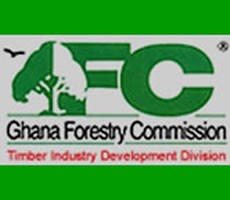The Forestry Commission’s (FC) estimation of Ghana’s environmental degradation in its major natural resource sectors as at 2010 costs between five to 10 per cent of Gross Domestic Product (GDP).
The forest sector, out of this, accounted for 63 per cent, equivalent to USD $500 Million in monetary terms, Professor Mrs Esi Awuah, Vice Chancellor (VC) of the University of Energy and Natural Resources (UENR) said on Friday.
Prof. Mrs Esi Awuah was speaking at a durbar organized by the National REDD+ Secretariat under the auspices of the FC at Dormaa-Ahenkro in the Brong-Ahafo Region.
The programme on the theme “Reducing forest loss and climate change impacts through REDD+; our collective responsibility,” was a climax of the second leg of National REDD+ Road Show, the first leg was held at Damongo in the Northern Region.
It was aimed at “selling REDD+ to all Ghanaians, drawing attention to unsustainable land-use practices, which lead to deforestation and forest degradation and their negative impacts, to win support of the general public for actions and measures targeted at addressing the drivers of deforestation and forest degradation in Ghana”
“The REDD+ is an acronym for “Reducing Emissions from Deforestation and Forest Degradation. The Plus sign represents activities that offer co-benefits such as biodiversity conservation, sustainable forest management and carbon stocks enhancement”.
According to the Food and Agricultural Organisation (FAO) of the United Nations, Ghana as at 2010 had lost more than 33.7 per cent of its forests, equivalent to 2,500,000 hectres since the 1990s, Prof. Mrs Awuah revealed.
Prof Mrs Awuah said between 2005 and 2010, the rate of Ghana’s deforestation was estimated at 2.19 per cent per annum, being the sixth highest deforestation rate globally for that period.
The key contributory factors among others were over-exploitation of forest resources, especially timber, unsustainable mining and agriculture activities, she observed, adding that, “agriculture is reported to account for about 50 per cent”.
Prof. Mrs Awuah emphasised the significance of forest and sustainable congenial climatic conditions to the survival of humankind, noting that “forest’s contributions to our economy, livelihoods and as a provider of micro-climate to our agricultural activities and eco-systems services cannot be underestimated”.
She, however, expressed regret about the actions and inactions of Ghanaians, adding that, climate change was becoming an increasing threat to secure livelihoods, social and economic development within the country and beyond.
Prof. Mrs Awuah nonetheless, expressed assurance that government was fully committed to mitigating those effects of climate change through preparation of measures for the country to adapt to those changes.
She mentioned the Ministry of Lands and Natural Resources (MLNR) and the FC, in collaboration with stakeholders, had been engaging in several forest governance initiatives and reforms to curtail the incidence of deforestation and forest degradation.
Prof Mrs Awuah cited besides the REDD+ project, other government initiatives, including the enactment of the new Forest and Wildlife Policy of 2012, that gave recognition to climate change strategies like dealing with tree tenure and benefit issues.
She said the Voluntary Partnership Agreement (VPA) Project would deal with legality assurance of timber trade as well as the recent emergence of the Forest Investment Project (FIP).
Prof. Mrs Awuah noted that all those initiatives were interlinked and had a common purpose of restoring forest resources, enhancing forest livelihoods and improving forest governance.
She nevertheless observed that almost all of them were Donor-driven and therefore suggested the need to integrate them into the forest sector’s mainstream activities to ensure sustainability after the projects existence.
General News of Monday, 13 October 2014
Source: GNA
Environmental degradation costs Ghana 5-10% of GDP













